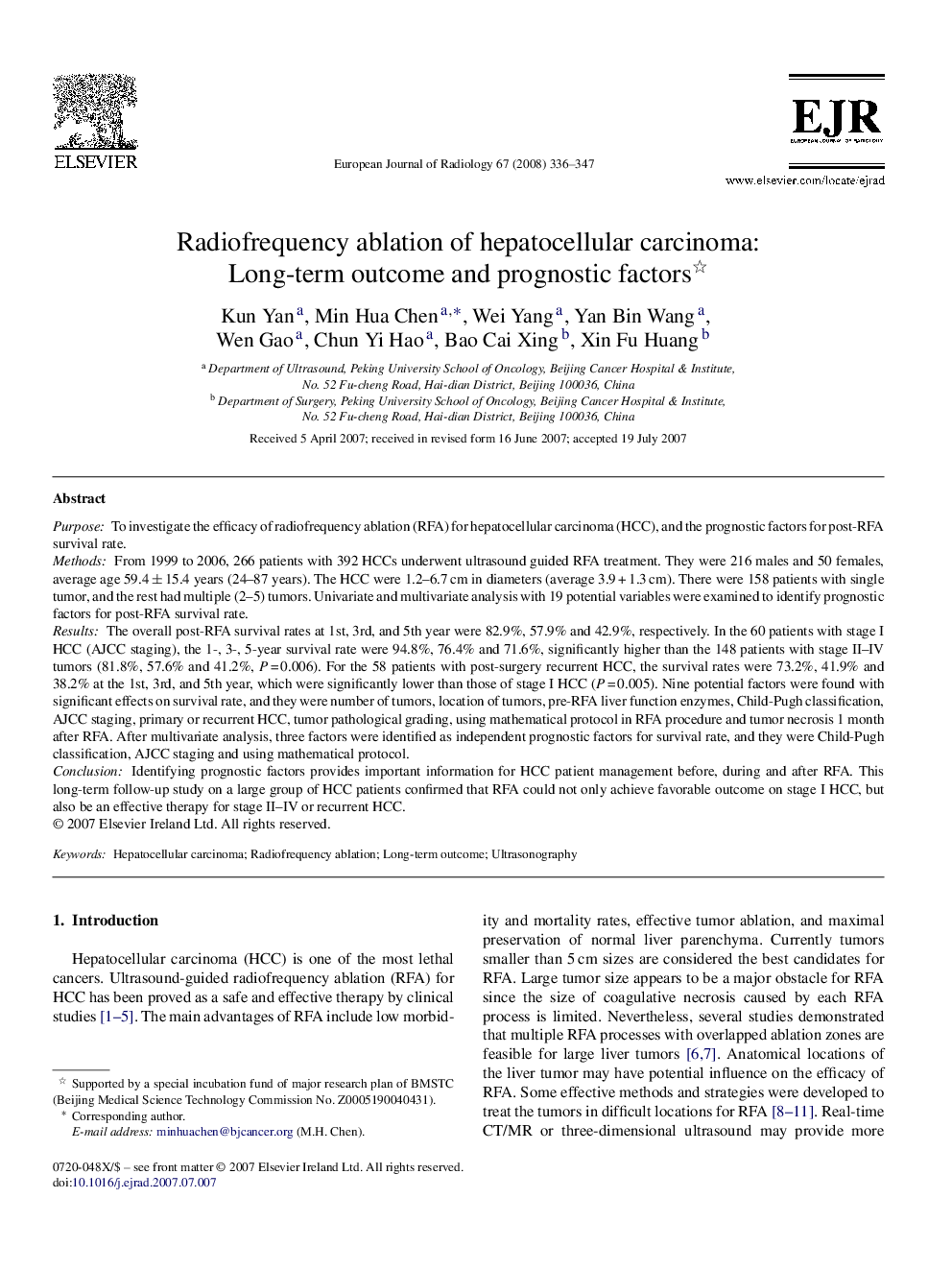| کد مقاله | کد نشریه | سال انتشار | مقاله انگلیسی | نسخه تمام متن |
|---|---|---|---|---|
| 4227800 | 1609837 | 2008 | 12 صفحه PDF | دانلود رایگان |

PurposeTo investigate the efficacy of radiofrequency ablation (RFA) for hepatocellular carcinoma (HCC), and the prognostic factors for post-RFA survival rate.MethodsFrom 1999 to 2006, 266 patients with 392 HCCs underwent ultrasound guided RFA treatment. They were 216 males and 50 females, average age 59.4 ± 15.4 years (24–87 years). The HCC were 1.2–6.7 cm in diameters (average 3.9 + 1.3 cm). There were 158 patients with single tumor, and the rest had multiple (2–5) tumors. Univariate and multivariate analysis with 19 potential variables were examined to identify prognostic factors for post-RFA survival rate.ResultsThe overall post-RFA survival rates at 1st, 3rd, and 5th year were 82.9%, 57.9% and 42.9%, respectively. In the 60 patients with stage I HCC (AJCC staging), the 1-, 3-, 5-year survival rate were 94.8%, 76.4% and 71.6%, significantly higher than the 148 patients with stage II–IV tumors (81.8%, 57.6% and 41.2%, P = 0.006). For the 58 patients with post-surgery recurrent HCC, the survival rates were 73.2%, 41.9% and 38.2% at the 1st, 3rd, and 5th year, which were significantly lower than those of stage I HCC (P = 0.005). Nine potential factors were found with significant effects on survival rate, and they were number of tumors, location of tumors, pre-RFA liver function enzymes, Child-Pugh classification, AJCC staging, primary or recurrent HCC, tumor pathological grading, using mathematical protocol in RFA procedure and tumor necrosis 1 month after RFA. After multivariate analysis, three factors were identified as independent prognostic factors for survival rate, and they were Child-Pugh classification, AJCC staging and using mathematical protocol.ConclusionIdentifying prognostic factors provides important information for HCC patient management before, during and after RFA. This long-term follow-up study on a large group of HCC patients confirmed that RFA could not only achieve favorable outcome on stage I HCC, but also be an effective therapy for stage II–IV or recurrent HCC.
Journal: European Journal of Radiology - Volume 67, Issue 2, August 2008, Pages 336–347